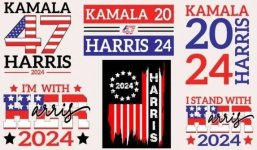In recent discussions (not mentioning any names) within this forum, the term "fascism" has surfaced frequently, prompting questions about its precise meaning and relevance in today's political landscape. Fascism is a far-right, authoritarian ultranationalist ideology that emerged in early 20th-century Europe, notably under leaders like Benito Mussolini in Italy and Adolf Hitler in Germany. It is characterized by dictatorial power, forcible suppression of opposition, strong regimentation of society and the economy, and often a policy of belligerent nationalism and racism.
Understanding fascism's historical context and core principles is essential for informed discourse, especially when evaluating contemporary political figures and movements. This exploration aims to provide a comprehensive analysis of fascism's origins, defining features, and its manifestations across different eras. By examining historical examples and drawing parallels to modern political dynamics, we can better assess claims of fascist tendencies in current leadership and understand the implications for democratic values and institutions.
Fascism, as both a political ideology and a movement, has exerted a profound and devastating impact on modern history. It is defined by an authoritarian structure in which power is centralized under a charismatic leader or elite, who uses this power to reshape the state according to nationalist, ethnocentric, or exclusionary ideals. Fascism thrives on control, glorifying the state above the individual and dismissing or persecuting those considered "other" or nonconforming. Its leaders leverage collective anxieties to paint themselves as indispensable protectors of the nation, using fear and crises—often fabricated or exaggerated—as pretexts to erode democratic institutions, suppress dissent, and push forward militaristic and often xenophobic policies. Understanding fascism requires a close look at its origins, its defining features, and the devastating effects it has had in dismantling democracies around the world. Equally important is recognizing how these characteristics have re-emerged in contemporary politics, particularly in the United States under the leadership of Donald Trump.
Historically, fascism first took root in the post-World War I period, with Benito Mussolini establishing the first fascist government in Italy. Mussolini’s vision of a "reborn" Italy, glorifying past empires, resonated amid widespread economic and political instability. Fascism, as Mussolini defined it, rejected both socialism and liberal democracy, proposing instead a model where corporations, the military, and the state operated as one. The aim was to suppress class conflicts and political opposition by aligning all sectors under a single, authoritarian rule. Mussolini dismantled democratic institutions, stifled civil liberties, and elevated himself as the ultimate authority, appealing to Italian nationalism and a mythic past. Hitler’s Nazi regime in Germany, which intensified the racial purity and antisemitism inherent in fascism, took this framework further, implementing a violently exclusionary state. Hitler’s policies of racial supremacy led directly to the Holocaust, one of the most horrific acts of genocide in history, and the militarization of Germany fueled an aggressive expansionism that resulted in World War II. The fascist regimes of Italy and Germany, through total control of the state and an elimination of opposition, demonstrated how the authoritarian impulses of fascism can drive a society toward catastrophic destruction.
Key to the function of fascism is the identification and vilification of an enemy, often an ethnic, religious, or political minority, portrayed as a threat to the nation's purity and strength. This scapegoating process unites the populace by redirecting societal frustrations onto a common adversary, thereby legitimizing the repression of these groups. Under fascist regimes, freedom of speech is typically curtailed, with independent media either suppressed or co-opted into a propaganda apparatus. Fascist leaders exert control over information to prevent dissenting opinions and critical perspectives from reaching the public. This undermining of truth and intellectual freedom enables leaders to present themselves as the ultimate source of legitimacy and to maintain a narrative in which they alone stand between the nation and its collapse.
In contemporary politics, Donald Trump’s actions and rhetoric have often drawn strong parallels to fascist practices, particularly his attacks on democratic norms, his appeals to an exclusionary nationalism, and his repeated attempts to erode checks and balances. Trump’s presidency was marked by a divisive "America First" platform, which, while framed as patriotism, often carried undertones of exclusion and nativism. His rhetoric on immigrants and minority groups displayed a consistent pattern of scapegoating, from describing Mexican immigrants as "criminals and rapists" to implementing a ban on Muslim-majority countries, which he justified as a national security measure. This tactic aligns closely with the fascist approach of creating a unified identity by casting certain groups as outsiders or threats, thus fostering a sense of fear and grievance among his base.
One of the most striking examples of Trump’s alignment with fascist behavior was his consistent assault on the free press. Trump repeatedly referred to the media as the "enemy of the people," a phrase directly reminiscent of fascist language, where independent media is seen as a threat to state power and national unity. By delegitimizing the press, Trump created an environment in which only his narrative held legitimacy, effectively isolating his supporters from any information that contradicted his claims. This tactic mirrors how Mussolini and Hitler controlled information, positioning themselves as the ultimate arbiters of truth while delegitimizing any opposition as biased, treasonous, or corrupt.
Trump's disdain for democratic institutions became even more explicit during his attempts to undermine the legitimacy of the 2020 presidential election. Despite overwhelming evidence that the election was fair, Trump and his allies spread baseless claims of widespread voter fraud, encouraging his followers to view the results as a product of a vast conspiracy. His rhetoric around the "stolen" election was not only inflammatory but also dangerous, leading directly to the January 6 Capitol insurrection. During this violent attempt to overturn the democratic process, Trump urged his supporters to "fight like hell" and refrained from intervening as the situation escalated. This willingness to disrupt the democratic transition of power, coupled with his unfounded claims of election fraud, echoes the fascist impulse to undermine or completely circumvent electoral legitimacy in favor of a single leader's claim to authority.
Additionally, Trump’s response to racial justice protests, particularly in the wake of George Floyd's death, displayed a fascist-like approach to law enforcement and public dissent. Rather than engaging with the issues raised by the protests, Trump opted for an authoritarian crackdown, using federal officers in unmarked vehicles to arrest protestors in cities like Portland. His administration’s reaction—one focused on suppressing rather than addressing dissent—revealed a troubling comfort with using state violence against civilians, another hallmark of fascism. Trump’s approach to protest and dissent was to delegitimize it as a form of social decay, justifying the need for a strong, often militarized, response that favored “law and order” over civil liberties or constructive dialogue.
These examples reflect a broader pattern of Trump’s fascistic tendencies, from his scapegoating of vulnerable groups to his attacks on democratic institutions and his comfort with state violence. By leveraging fear, manipulating narratives, and undermining democratic processes, Trump’s actions paralleled those of fascist leaders who prioritized personal power and control over democratic principles and accountability. His disregard for the rule of law, particularly his attempts to manipulate the judiciary and obstruct investigations into his administration, further highlight his authoritarian inclinations. Trump's presidency thus illustrates how a leader who values personal loyalty and unchecked power over the integrity of democratic institutions can threaten the foundation of a free society.
In stark contrast, democratic governance is founded on principles of pluralism, accountability, and respect for individual rights. In a democracy, the government is accountable to the people, who have the right to participate in political processes and voice dissent. Democratic societies protect the freedom of the press, uphold the rule of law, and ensure that power is distributed among institutions to prevent any one individual or group from seizing control. Leaders in democratic countries do not cast themselves as ultimate authorities but instead are meant to act as representatives, bound by the limits of the law and the will of the people.
Examples of democratic leaders who have navigated crises while maintaining these values abound. Franklin D. Roosevelt in the United States, for example, faced the Great Depression and World War II but consistently reinforced the nation’s democratic framework through policies that expanded social welfare without curtailing civil liberties. Similarly, Nelson Mandela, upon ending apartheid in South Africa, pursued a democratic vision focused on reconciliation and inclusion rather than vengeance or dominance. These leaders demonstrated that democratic principles could be maintained even in difficult times, using pluralism and the rule of law as sources of strength rather than treating diversity or dissent as weaknesses.
On a global scale, democracy remains crucial for peace, cooperation, and the promotion of human rights. Organizations like the United Nations and the European Union, though imperfect, strive to foster democratic governance and uphold human rights as universal values. In a world facing transnational challenges—from climate change to economic inequality—democratic structures provide a framework for collaboration, allowing nations to address these issues through collective action rather than unilateral, authoritarian force. Democratic nations generally seek to resolve conflicts through diplomacy and uphold a global order based on mutual respect, principles that fascist ideologies inherently oppose.
The distinction between fascism and democracy is ultimately one of repression versus freedom, exclusion versus inclusion, and authoritarianism versus accountability. Fascism concentrates power, breeds division, and thrives on fear, while democracy disperses power, values diversity, and upholds individual rights. As history has shown, fascism’s impulse toward total control and the suppression of dissent inevitably leads to the degradation of society, while democracy—despite its challenges—remains the most effective defense against tyranny. The preservation of democracy depends on a society’s commitment to these values and its vigilance in recognizing and rejecting the authoritarian tendencies that, as recent years have shown, can threaten even the world’s most established democracies.
I hope this answers the question appropriately.



